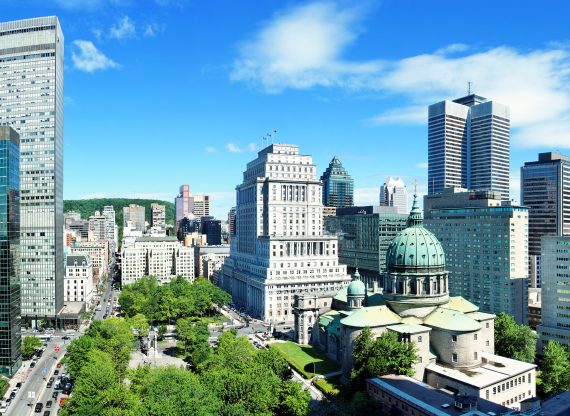Public finances, tourism, and affordable housing: The MEI unveils its prebudget brief for Montreal

- $1.1 billion: cost of the 40% remuneration premium for civil servants in 2024
- Four months: time required to build as many new units as were listed on Airbnb in Montreal last year
- Up to $10,535 per unit: increase in construction costs stemming from the “20-20-20” regulation
Montreal, April 25, 2023 – In the context of budget consultations taking place today at City Hall, the Montreal Economic Institute published its prebudget brief for Montreal this morning.
“It’s no surprise that Montreal never has enough money: the average municipal employee is among the best-paid 10% of Montrealers,” says Renaud Brossard, senior director of communications at the MEI and co-author of the brief. “Before taking even more money from residents’ wallets, the Plante administration has to get rid of the 40% premium enjoyed by municipal civil servants.”
Municipal employees in the province of Quebec have an average remuneration that is 40% higher than those holding equivalent positions in the private sector, according to the Institut de la statistique du Québec.
The data from HEC Montréal’s Centre sur la productivité et la prospérité show that Montreal is no exception, with average remuneration of $106,693 per employee.
A Montrealer making over $102,400 a year is among the top 10% of income earners in the city, according to Statistics Canada.
The Institute calculates that this 40% remuneration premium will cost Montrealers $1.1 billion in 2024, or 15.3% of the City’s budget.
The brief also shows that short-term vacation rentals—such as rental units listed on Airbnb—have a negligible impact on the matter of housing affordability.
“Just with the Bridge-Bonaventure project and the former Hippodrome, the City has cancelled, suspended, or made impracticable twice as many units as were rented on Airbnb last year,” says Mr. Brossard. “It’s time for the Plante administration to recognize its role in the unaffordability of housing and stop scapegoating vacation rentals.”
The Institute compares the 10,523 dwellings listed on Airbnb last year to the 460,000 units the Montreal Metropolitan Community estimates need to be built by 2030 for the market to return to a level considered affordable.
It also notes that there were over 30,000 residential housing starts last year in the Greater Montreal region. This means that it takes around four months to have as many units built as the total number listed on Airbnb in the metropolitan region.
The brief notes that regulation and its effect on housing starts and the cost of new units are much more significant causes of the unaffordability of housing.
“Each regulation and each administrative delay increases construction costs and makes the development process that much longer,” explains Mr. Brossard. “The result is restricted supply, and higher costs for Montrealers, which contribute to the affordability problem we are living through today.”
The 20-20-20 regulation alone increases construction costs by up to $10,535 per unit. This amount is then reflected in the sale or rental prices of new housing.
The Institute recommends a thorough review of regulation with a view to reducing obstacles to construction.
The MEI will present its brief to the City of Montreal’s Commission sur les finances et l’administration this afternoon, at 3:40 pm.
You can consult the MEI’s brief (in French only) here.
* * *
The MEI is an independent public policy think tank with offices in Montreal and Calgary. Through its publications, media appearances, and advisory services to policy-makers, the MEI stimulates public policy debate and reforms based on sound economics and entrepreneurship.
– 30 –
Interview requests
Renaud Brossard
Senior Director, Communications
Cell: 514-743-2883

